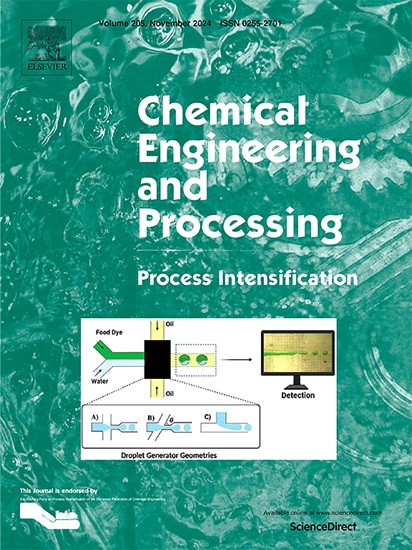Low-cost and efficient synthesis of SSZ-35 zeolite through a seed-assisted approach
IF 3.8
3区 工程技术
Q3 ENERGY & FUELS
Chemical Engineering and Processing - Process Intensification
Pub Date : 2025-02-01
DOI:10.1016/j.cep.2024.110122
引用次数: 0
Abstract
A low-cost and process-intensified synthesis approach of SSZ-35 zeolite via a seed-assisted method is presented. This approach involves the development of a relatively inexpensive template and the application of seeds to minimize crystallization time and template consumption. Herein, N-Ethyl, N-methyl 2,6-cis-dimethylpiperidinium hydroxide (EMDMPOH) is selected as a template to synthesize SSZ-35 zeolite, and a simplified and optimized scheme for the preparation of such a template is proposed. Specially, the high-purity EMDMPOH is prepared by a sequential alkylation of 2,6-dimethylpiperidine with iodoethane and iodomethane, followed by ion exchange. By employing a seed-assisted strategy, the synthesis process of SSZ-35 zeolite is intensified, resulting in a significant reduction in crystallization time from 7 d to 75 h. Systematic characterizations reveal that the synthesized SSZ-35 zeolite has smaller crystals and larger specific surface area in comparison with the reference sample, leading to enhanced selectivity in n-octane hydroisomerization. Moreover, the cost accounting analysis shows a notable decrease in the synthesis cost of SSZ-35 zeolite by using the synthesis route that combines the simplified process for preparing the template and the reduced amount of template.

求助全文
约1分钟内获得全文
求助全文
来源期刊
CiteScore
7.80
自引率
9.30%
发文量
408
审稿时长
49 days
期刊介绍:
Chemical Engineering and Processing: Process Intensification is intended for practicing researchers in industry and academia, working in the field of Process Engineering and related to the subject of Process Intensification.Articles published in the Journal demonstrate how novel discoveries, developments and theories in the field of Process Engineering and in particular Process Intensification may be used for analysis and design of innovative equipment and processing methods with substantially improved sustainability, efficiency and environmental performance.

 求助内容:
求助内容: 应助结果提醒方式:
应助结果提醒方式:


